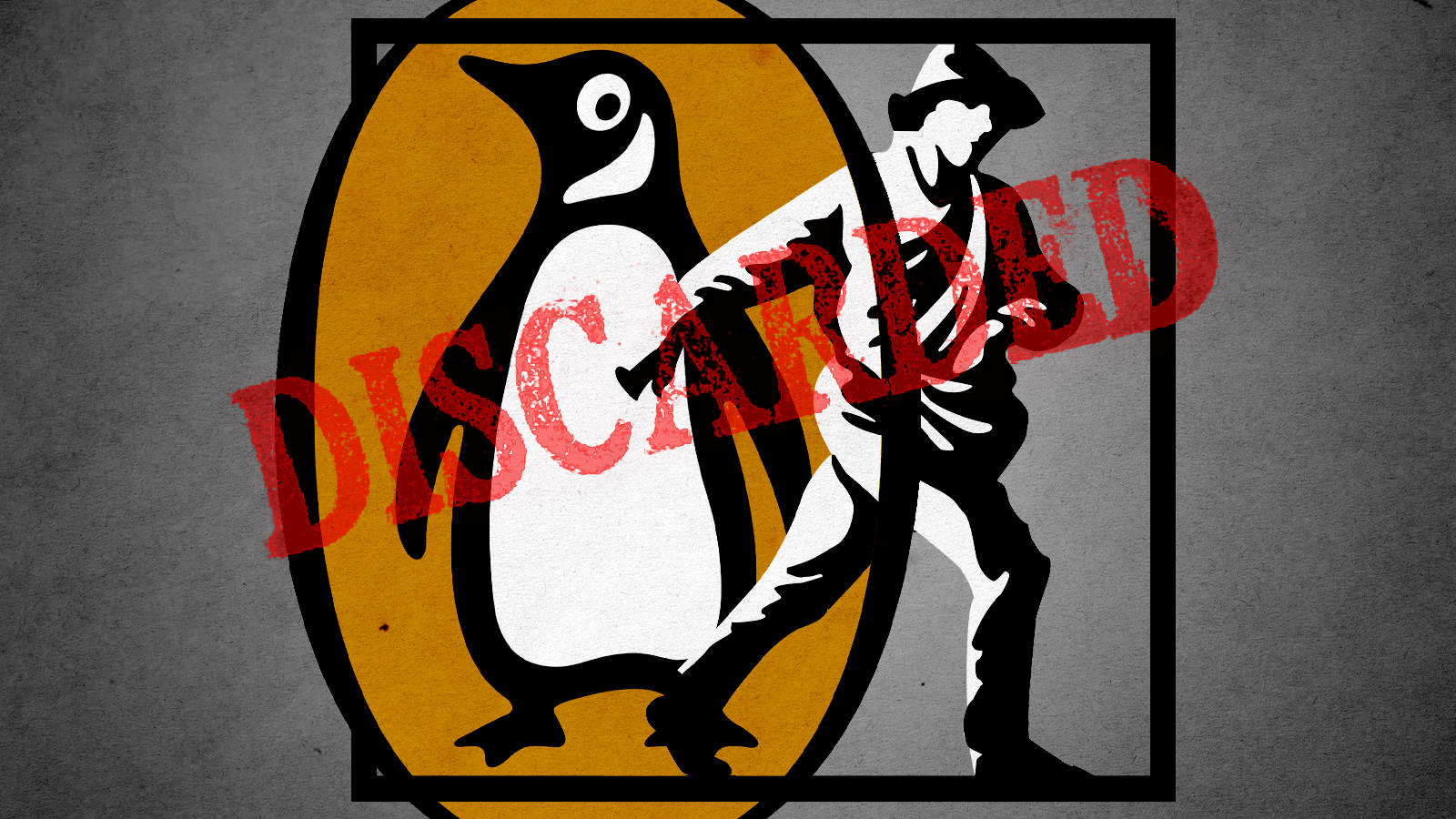Why did the government block a big merger between book publishers?
What a 'hipster antitrust' law means for readers and authors


Readers are in no longer in danger of buying their next book from Penguin Random House Simon & Schuster: A mega-merger between two of the country's biggest publishers is dead. The owners of Simon & Schuster have decided to abandon the company's sale to Penguin Random House, Reuters reports, ending a two-year effort to consolidate the companies into one uber-publisher to rule them all.
The collapse of the deal came after a federal judge in early November blocked the merger. The Biden Administration had sued to stop the transaction on antitrust grounds — the country would be left with just four major publishers if the merger went through — and novelist Stephen King was one of bookdom's "industry luminaries" who testified at the trial. He was decidedly anti-merger: "Publishing should be more focused on cultural growth and literary achievement and less on corporate balance sheets," he told The New York Times.
The two book companies disagreed, calling the judge's ruling "an unfortunate setback for readers and authors." Now the deal is off. Why did this merger attract scrutiny, and what will it mean for the book industry's future? Here's everything you need to know:
The Week
Escape your echo chamber. Get the facts behind the news, plus analysis from multiple perspectives.

Sign up for The Week's Free Newsletters
From our morning news briefing to a weekly Good News Newsletter, get the best of The Week delivered directly to your inbox.
From our morning news briefing to a weekly Good News Newsletter, get the best of The Week delivered directly to your inbox.
Why do the publishers want to merge?
The number of publishers has been shrinking for years. Indeed, the very name of one of the companies involved in the merger — Penguin Random House, the result of a 2013 merger — demonstrates how far that process has already gone. As Constance Grady explains at Vox, the trend has left the country with five big publishers that control 80 percent of the book market in the United States. (HarperCollins, Hachette, and Macmillan are the other three not involved in the merger.) Penguin Random House is already the biggest of that very big lot, with 25 percent market share.
"When parent company ViacomCBS put Simon & Schuster up for sale in 2020, the smart money was on another one of the major publishers acquiring the house," Grady writes. Penguin Random House won the bidding.
Why did the government oppose the merger?
The Biden Administration argued that it was bad for pretty much everybody involved with books except the publishers. Federal officials made the case that the merger "will drive down author advances, result in fewer books being published, and provide less variety for consumers," The Conversation reports. Why? Because there would be fewer publishers to bid on the work of new authors, which means they would probably end up taking less pay to write — and that, in turn, would probably mean fewer new books and new authors for readers to enjoy.
The 1914 federal antitrust law known as the Clayton Act "prohibits mergers if the effect of the transaction 'may be' substantially to lessen competition," government lawyers wrote in a pre-trial brief. The book industry is "already highly concentrated and the merging parties' market shares are substantial," which means they fit the bill.
A free daily email with the biggest news stories of the day – and the best features from TheWeek.com
Was this unusual?
Yes. As Franklin Foer writes at The Atlantic, antitrust policy has been guided in recent decades by the so-called consumer welfare standard, which holds "that the size of a company doesn't matter so long as the company doesn't abuse its power to hike prices." If customers get cheaper goods out of a merger, so much the better. The case against the publishing merger was prosecuted under a different, older theory of antitrust law: "A healthy economy — and a healthy democracy — can't simply protect consumers; it must also protect producers." (This way of thinking about monopolies and mergers has sometimes been called the "hipster antitrust" movement, because it hearkens back to the ideas of Supreme Court Justice Louis Brandeis, who last served in office in 1939.) In other words: The ability of authors to break into the industry and earn a living was threatened by the merger. And the government saw that as a violation of antitrust law.
Will there be fallout for other industries?
Possibly. "The decision is an extraordinary step forward for supporters of an antitrust revival, with seismic ramifications that extend far beyond the publishing world," Alex Shepard writes at The New Republic. He said the government could use the precedent created by the blocked merger to take on other hugely powerful companies, like Facebook. And Foer says the Department of Justice should use this approach to crack down on Amazon, which sells more than half of all books. But the Biden administration doesn't always succeed in its aggressive antitrust efforts, The Associated Press reports: It may have won the book case, but it lost two other recent cases involving mergers in the health care and sugar industries.
What's next for the publishers?
The end of the deal means "Simon & Schuster once again faces an uncertain future," The New York Times reports. That's not so bad for the moment: The company has seen "record results" so far in 2022. But the book industry might be in for some rough times ahead — for most publishers sales have dipped from their pandemic highs, and the possibility of a recession may take a further toll. For now, though, the period of book industry consolidation is over. Or interrupted, at the very least. And people like Mary Rasenberger, chief executive of the Authors Guild, think that's a good thing: "A healthy publishing ecosystem is one that has many publishers with different tastes and interests and degrees of risk they're willing to assume."
Update Nov. 22: This piece has been updated throughout to reflect the latest news about the merger.
Joel Mathis is a writer with 30 years of newspaper and online journalism experience. His work also regularly appears in National Geographic and The Kansas City Star. His awards include best online commentary at the Online News Association and (twice) at the City and Regional Magazine Association.
-
 Which way will Trump go on Iran?
Which way will Trump go on Iran?Today’s Big Question Diplomatic talks set to be held in Turkey on Friday, but failure to reach an agreement could have ‘terrible’ global ramifications
-
 High Court action over Cape Verde tourist deaths
High Court action over Cape Verde tourist deathsThe Explainer Holidaymakers sue TUI after gastric illness outbreaks linked to six British deaths
-
 The battle over the Irish language in Northern Ireland
The battle over the Irish language in Northern IrelandUnder the Radar Popularity is soaring across Northern Ireland, but dual-language sign policies agitate division as unionists accuse nationalists of cultural erosion
-
 The video game franchises with the best lore
The video game franchises with the best loreThe Week Recommends The developers behind these games used their keen attention to detail and expert storytelling abilities to create entire universes
-
 The buzziest movies from the 2023 Venice Film Festival
The buzziest movies from the 2023 Venice Film FestivalSpeed Read Which would-be Oscar contenders got a boost?
-
 America's troubling school bus driver shortage
America's troubling school bus driver shortageSpeed Read Kids are heading back to school, but they might be having trouble getting a ride
-
 5 college admissions trends to watch out for this year
5 college admissions trends to watch out for this yearSpeed Read College advisers and admissions experts say these trends will shape the 2023-2024 admissions cycle
-
 What's going on with Fyre Festival II?
What's going on with Fyre Festival II?Speed Read Convicted felon Billy McFarland claims the music festival will happen, for real this time
-
 The answer to rising home prices: smaller homes
The answer to rising home prices: smaller homesSpeed Read Builders are opting for fewer rooms and more attached styles as frustrated homebuyers look for affordable options
-
 5 illuminating books about the video game industry
5 illuminating books about the video game industrySpeed Read Cozy up with a few reads that dig into some of the most fascinating parts of video game history
-
 Everything we know about the final season of 'Stranger Things'
Everything we know about the final season of 'Stranger Things'Speed Read The Netflix hit will turn things up to eleven in its final bow ... eventually
